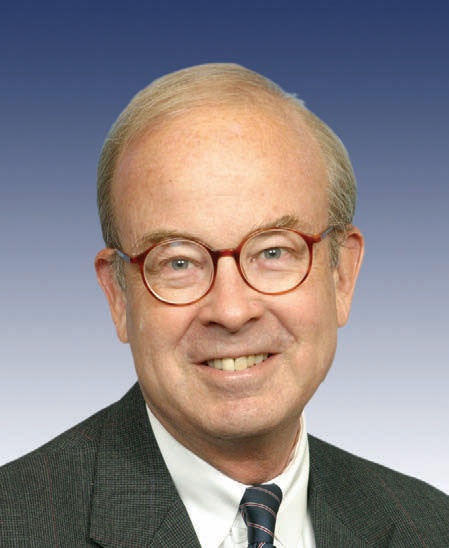It looks like U.S. carbon dioxide emissions peaked in 2007. But are we really seeing the start of an even more fundamental change in the U.S. economy, driven by the hyper-recession, team Obama and other major trends (like peak oil and global warming)?
I’m very interested in what you are seeing and hearing from your friends and neighbors as well as what you think at the macro level.
The economic downturn is forcing a return to a culture of thrift that many economists say could last well beyond the inevitable recovery.
So began a front-page NYT story this week. With the huge recent devaluation of two key retirement assets — houses and 401ks — thrift is the word of the day and the year and maybe much longer:
I expect that the savings rate will end up at the end of this recession higher than it was going into it,” said Jonathan A. Parker, a finance professor at the Kellogg School of Management at Northwestern University. “It’s hard to see how it wouldn’t.”
But this isn’t just about spending less and saving more.
This is about a shift to a form of consumption that is based on renewable resources, that doesn’t destroy the planet’s livability — a sustainable economy, not a Ponzi scheme.
Here is where Obama comes in. His stimulus package and first 100 days were the biggest push away from dirty energy in U.S. history, accelerating a massive transition to clean, safe sources of energy that never run out! It is a key reason CO2 emissions have probably peaked.
In his big speech on science and R&D last month — “Our future on this planet depends on our willingness to address the challenge posed by carbon pollution,” vows “we will exceed [R&D] level achieved at the height of the space race.” — Obama took direct aim at a purely consumption-based economy:
So I want to persuade you to spend time in the classroom, talking and showing young people what it is that your work can mean, and what it means to you. I want to encourage you to participate in programs to allow students to get a degree in science fields and a teaching certificate at the same time. I want us all to think about new and creative ways to engage young people in science and engineering, whether it’s science festivals, robotics competitions, fairs that encourage young people to create and build and invent — to be makers of things, not just consumers of things.
Indeed, Obama used the word “create” 12 times in the speech, which suggest he and his speechwriters are sending a message. Indeed that’s why Obama says things like:
“The choice we face is not between saving our environment and saving our economy. The choice we face is between prosperity and decline.” (4/22)
“We cannot rebuild this economy on the same pile of sand.” (4/14)
“We can let the jobs of tomorrow be created abroad, or we can create those jobs right here in America and lay the foundation for our lasting prosperity.” (3/19)
Obama gets it.
If anything like the Waxman-Markey bill in its current form becomes law, then this country will begin a major transition toward making unsustainable energy more expensive while strongly encouraging efficiency and sustainable, clean energy jobs.
Oregon governor Ted Kulongoski began a national conversation when he said recently:
“Other than taxes,” Mr. Kulongoski said, “the hardest thing I find to talk with my constituents and my citizens about is about changing lifestyles.”
It was a wide-ranging critique, but the gist of it was this: Combating climate change and making the transition to renewable energy sources will be expensive, and Americans need to acknowledge and accept that….
Americans, he said, are acculturated to believing that “more is best.” It’s built into the economy, Mr. Kulongoski said. “It’s about the Joneses next door: if they’ve got it, I want it — and a bigger one.”
“But at some point,” he said, “you have to be candid with the public and say ‘Why do two people need a 3,000-square-foot house?”
Not everyone in the sustainable community liked what Kulongoski said:
David Roberts, a staff writer at Grist.org, took the governor to task [see here]. Lifestyles, he said, are always evolving — gradually — with changes in technology, new modes of communication and so forth. Intimating that climate change will require abrupt and perhaps distressing lifestyle adjustments among Americans is, he said, counterproductive.
“People fear losing what they’ve got,” he wrote. “It’s fine to acknowledge that shifting to a low-carbon economy will involve big changes, but there’s no reason to feed the fear that those changes will be disruptive and unpleasant. They needn’t be.”
I don’t entirely disagree with Roberts, but I look at the matter differently, as readers know.
Humanity has only two paths forward at this point, as Obama said — “prosperity and decline”: We voluntarily switch to a low-carbon, low-oil, low-net-water use, low-net-material use economy over the next two decades or the post-Ponzi-scheme-collapse forces us to do so circa 2030. The only difference between the two paths is that the the first one spares our children and grandchildren and the next 50 generations untold misery aka Hell and High Water.
The ultimate change will be very significant, though I agree with Kulongoski, who said, “but it will end up making your life, and your children’s lives, and your grandchildren’s lives, better” and I agree with Roberts, who wrote, “Changing to a low-carbon economy could increase our quality of life” — especially compared to the alternative!
The combination of Obama’s policies and leadership (especially if he’s a two-termer) and peak oil (which will rear its pointy head as soon as the global recession is over) and the increasingly obvious and painful reality of global warming will bring about a lot of change.
The title of this post should really be “Is the U.S. unsustainble consumption binge over?”
Well, is it?


